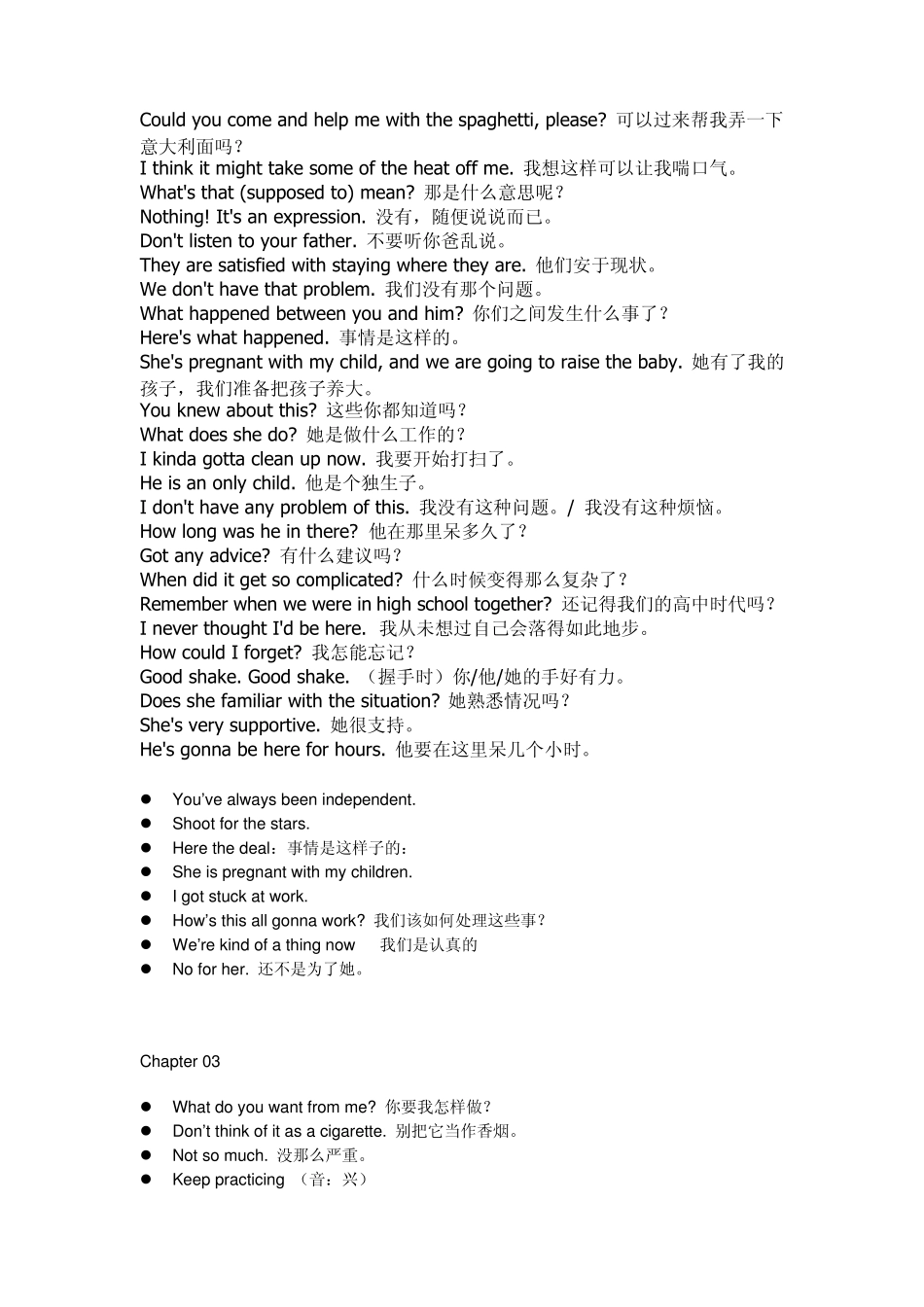Chapter 01 It sucks. You’re gonna love it 很差劲,(不过)你会喜欢它的。 Are you gonna be okay? 你没事吧? I gotta go home sometime. 我要回家了 Split it? 分了它 I had a major crush on you 我曾经暗恋过你 Do you think it would be okay if I asked you out sometime? 你觉得有时我叫出来好吗? Hey, what’s with you? 怎样了? Would anybody like more coffee? Why does everyone keep fixating on that? 为什么每个人老是提它? I told Mom and Dad last night. They took it pretty well. 还好接受。 I got freaked out, and it hit me: 突然想到: That can’t be good. 那样不太好 I can not feel my leg. 脚麻了 Ever since she walked out on me …… 离开我后 How long is it since you lived in Shanghai?你离开(没住在)上海多久了? 若 since 引导的状语从句的谓语动词是持续性动词或表示状态的动词的过去时时,则从句表示的时间是“从那持续动作或状态结束时算起” 比较:He has written to me frequently since I was ill.自从我病愈以来,他屡次给我写信。(从句谓语为状态动词) He has written to me frequently since I fell ill.自从我生病以来,他就屡次给我写信。(从句谓语为终止性动词) 若 since 引导的状语从句的谓语为持续性动词的现在完成时,则表示动作和状态延续到现在(说话时刻),其表示的时间的起点应从动作发生之时算起。如: I haven’t heard from him since he has lived there。 这里 has lived 表示动作的持续性,时间的起点应从:“开始居住”时算起。因此此句可理解为“自从他(开始)住在那儿起,我就一直没收到他的来信”。 Since we have owned a car, we have gone camping every year。自从我们自己有了汽车,我们每年都去野营。 You can’t live off your parents whole life. (live off 以… 为生,靠… 生活) You probably didn’t know this, but in high school, I had major crush on you I figured you thought I was… 我以为你只当我是…… CHAPTER 02 Are you throug...


